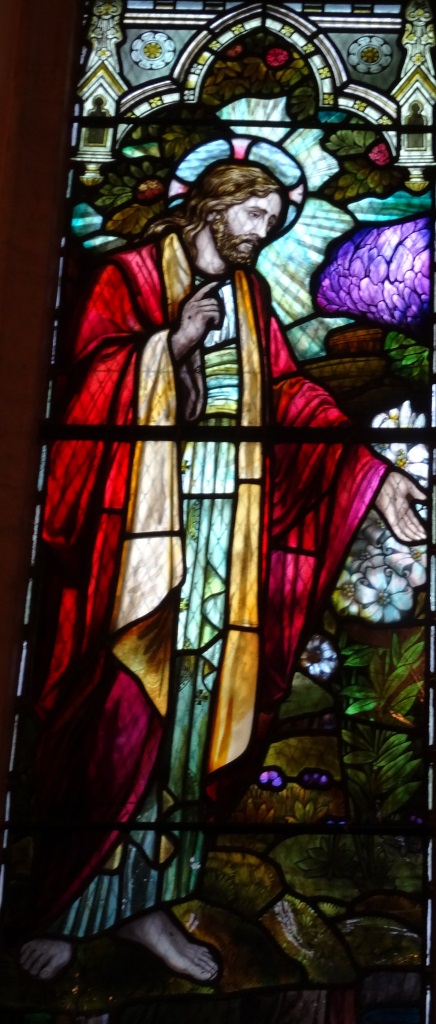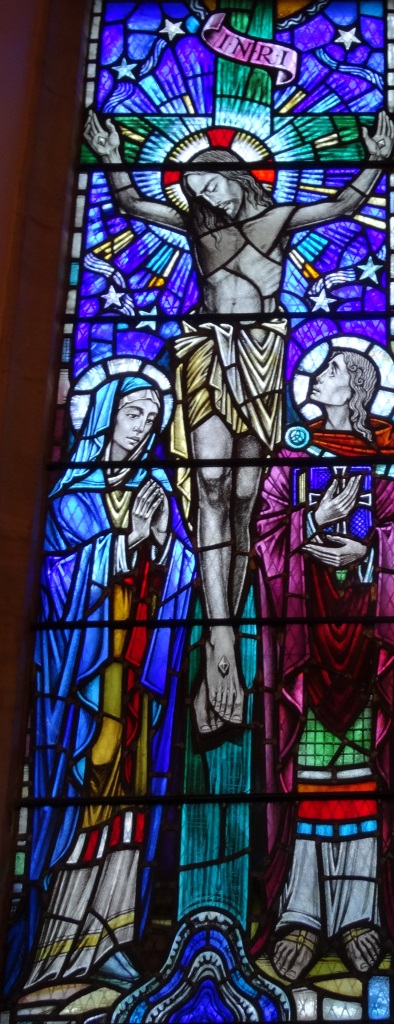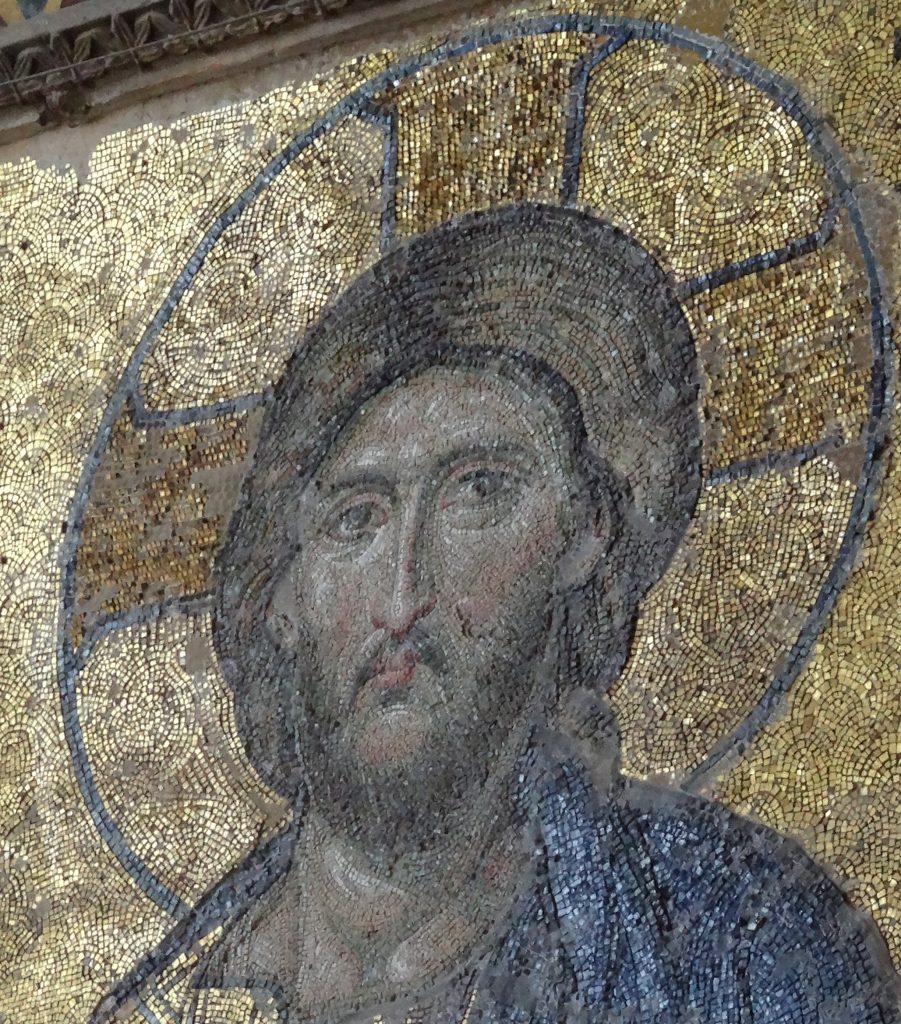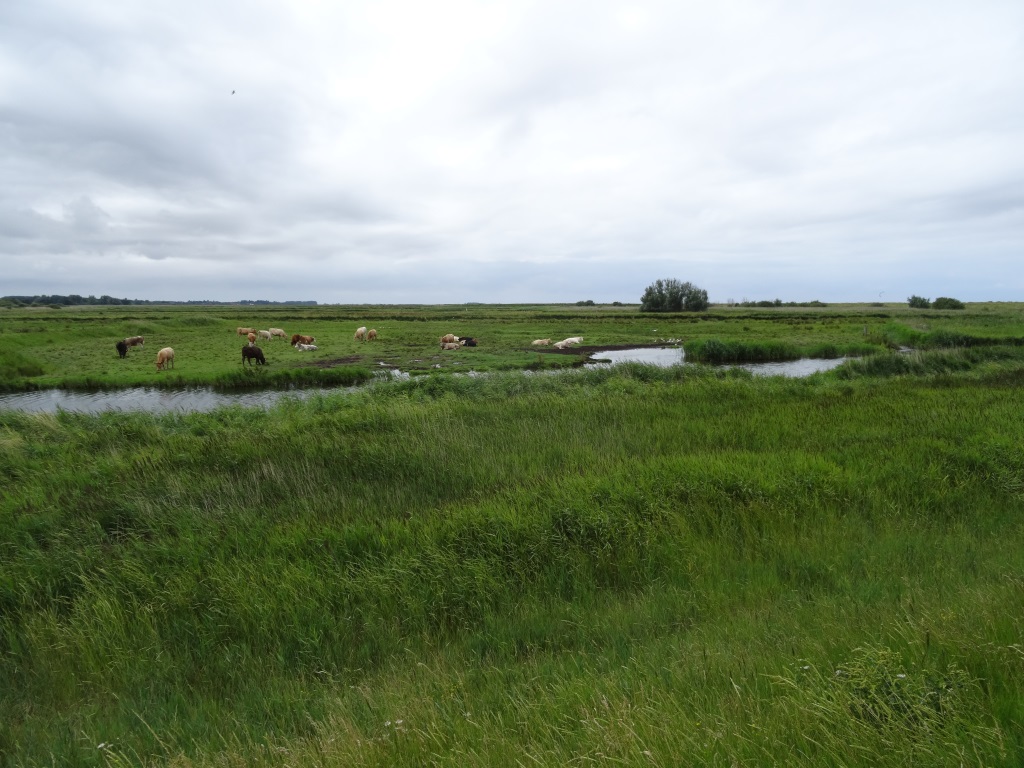What is the Christian Faith about?
Whole libraries have been written about it. What follows is a short introduction to it. If you would like to know some more contact us through our Facebook page or website
1. Looking for some meaning in life
‘Why?’ It’s a question that young children love to ask, and as adults how often do we find ourselves asking that same question when something happens? It seems to be a natural human instinct to look for explanations or meaning in things that happen:
- it might be a new life coming into the world, or one special to us slipping away
- it might be in response to disaster or disease
- it might be when we have every material possession we could possibly want, but ‘something’ seems to be missing


What is our view of life and the world around us:

- What are the things that really matter to you?
- What are the things that make life good and enjoyable for you?
- What are the things that worry you, or spoil your enjoyment of life?
- What would you like the future to be like?
- Do you think it will be like that?
- Do you think your priorities in life have changed over time, and will they keep changing?
Some people spend all their lives looking for that ‘something’ that gives life meaning (whether they have every material possession or they don’t). Some never give up looking, hoping that they’ll find it. Others feel that that there is no answer, that life is meaningless and you just have to make of it the best you can. For some that means devoting yourself to working for the ‘common good’ – addressing poverty, climate change, human rights or whatever. For others it means getting as much enjoyment out of life as possible (and tough on everyone else). For some it means they can do what they like, because in the end there is no Right or Wrong, only power.
In practice many people in the world, including a very large number in this country, have a ’spiritual’ dimension to their lives. Many believe in a Higher Power (whom they might or might not call God).
Christians believe that there is a Higher Power, who gives meaning and purpose to life, and call that Higher Power ‘God’. They don’t believe that God is just another name for the universe and how it operates, but that God is separate from the universe, and greater than it, that God caused the universe to come into existence. For Christians God is not some ‘old man in the sky’ but is a force completely different from nature – but not an impersonal force, rather one that can relate to people in a personal way. Our picture of God is based partly on the experience of the Jewish people, but most fully on the image of God revealed by Jesus of Nazareth – not selfish or petulant, remote or vindictive, but loving and caring, opposed to injustice, oppression, cruelty and abuse. We believe that he knows and cares about each one of us, and while respecting the freedom of the universe to change and develop, works tirelessly to bring peace and justice, wholeness and fullness of life to it.
That gives us meaning and purpose for our lives.
2. Who is Jesus of Nazareth?
Jesus of Nazareth, Jesus Christ, is central to the Christian Faith
- People who are not Christians generally believe that Jesus of Nazareth existed – only a small minority believe that he was a mythical character
- What are the sources of information about him?
- New Testament Gospels. It is reckoned that the first was written about 30-40 years after Jesus’ death, and the others over the next 50 years or so. At first stories and teaching from Jesus were passed on orally. In our culture we usually imagine that such transmission would cause ‘arms and legs’ to grow on any story, but research into cultures with limited literacy across the population suggests the reverse – that oral transmission sees information passed on accurately. The Gospels are not biography or history. They were religious books designed to address the specific concerns of specific groups
- Outside sources. Although Jesus is not directly referred to in any surviving texts, there are references to Christians in eg the works of Suetonius, Tacitus and Pliny the Younger; and material by Josephus, Philo of Alexandria and others give an insight into life in the Holy Land at that time
- Archaeology. Of the many archaeological digs in the Holy Land that have produced evidence relating to the First Century AD/CE, probably the one at Qumran (home of the Dead Sea Scrolls) has probably provided the most valuable information
- Books that didn’t make it into the New Testament. There are a number of surviving texts from the late 1st Century/ early 2nd that didn’t make it into the New Testament. In some cases (eg the letters of Pope Clement I) their contents were regarded as fitting with the message that the Apostles taught, but they did not come from the Apostles themselves. In other cases, though they claimed to be composed by one of the Apostles, their contents didn’t match what the Apostles taught. (The latter are often described as ‘Gnostic’ and were the materials referred to in The Da Vinci Code)
What do we know about Jesus?

Brought up in Nazareth (a small town/ village in hills of Galilee)
A carpenter before his call to ministry in the 30s AD
His ministry may have lasted up to 3 years in Galilee and Judaea – and attracted followers
He died about 30-33AD
He lived in a very fractured/ fractious country:
– politically
– ethnically
– religiously
*The use of BC and AD began around the 8th Century AD, promoted by Bede of Jarrow.
He didn’t quite manage to pick the right year as the ‘turn of the eras’!
What sort of things did Jesus say?:
We can call God ‘Father’
‘The last shall be first, the master shall be servant’
Care for others, without distinction
Do things without expecting praise or reward
Forgive
Don’t judge others
Love God, love others, love yourself
What did Jesus do?:
He was a preacher who travelled around, speaking in the open air or in synagogues, describing his understanding of the nature of God, God’s priorities in life, and how God wanted people to live
He brought healing to people (both physically and mentally)
He affirmed people who were struggling to accept themselves
He mixed with all sorts of people
He upset the ‘authorities’ and ‘respectable’ people
3. What does the church claim about Jesus?
Below is one of the worldwide church’s statements of its beliefs, usually called the Apostle’s Creed. It is a good starter for thinking about some of the Christian faith’s claims about Jesus:
I believe in God, the Father Almighty,
creator of heaven and earth.
I believe in Jesus Christ, God’s only Son, our Lord,
who was conceived by the Holy Spirit,
born of the Virgin Mary,
suffered under Pontius Pilate,
was crucified, died, and was buried;
he descended to the dead.
On the third day he rose again;
he ascended into heaven,
he is seated at the right hand of the Father,
and he will come to judge the living and the dead.
I believe in the Holy Spirit,
the holy catholic Church,
the communion of saints.
The forgiveness of sins,
the resurrection of the body,
and the life everlasting.
Amen
What is the significance of Jesus’ death?

In the immediate aftermath of Good Friday the disciples felt shattered, the hopes and dreams they had pinned on this man had come to nothing when he was arrested and executed. After Easter, they began to reflect on his death – was it an accident or part of a divine plan? Drawing on everyday experiences in both the Jewish and Greek world, they found various analogies to see a reason and purpose behind his death:
The Temple – a sacrifice took away the pollution of ‘sin’
The market-place – cancelling a debt redeemed a slave
The law court – declaring the punishment and then bearing it
The home – restoring a relationship
These analogies may still work for us, but if they don’t, can we find anything in our contemporary culture that provides a similar analogy?
What is the significance of his rising again?

Some Jewish traditions believed in ‘resurrection’, but they expected it to happen at the end of time, and maybe only for the righteous (the people who had kept to God’s way). The disciples concluded that this must be the start of a new era.
The experience of the Empty Tomb/resurrection galvanised the disciples into accepting that Jesus as special and unique. He was not just revived at Easter but transformed – he was the same but different.
They knew what they had experienced, but they still struggled to understand and explain it. Reading through the different books of the New Testament it is possible to see the disciples views changing over time, as they wrestled among themselves to understand who Jesus was, and what his death and resurrection ‘meant’, as they argues with people from the mainstream Jewish and Greek communities, and as they found themselves coming to conclusions that initially they wouldn’t have dared to voice
Among the conclusions they reached were:
- We will be raised because Christ was
- We have already begun to share in the new life of Jesus’ resurrection
- Baptism is a sign, symbol and more of sharing in the resurrection
Was Jesus a human being or some kind of god?

To Jews, suggesting that Jesus was other than fully human was blasphemy. To educated Greek, Roman or Greek-educated Jews, God becoming human was an impossible nonsense – God is ‘spirit’, and something that is ‘spirit’ cannot become ‘material’.
The texts in the New Testament suggests that the early church struggled to come to terms with the relationship between Jesus and God, and whether Jesus was wholly human or in some way ‘divine’, and that its understanding evolved over time.
It continued to be a topic of heated controversy for the next five centuries (though most members probably didn’t understand the theological arguments. In the end the Church took the position that Jesus was fully human, but also divine. It led to some splits in the Christian community. Orthodox, Roman Catholics and Protestants all have the same view on the humanity/divinity of Jesus
4. Prayer
Icebreaker: Any experiences of people of other faiths praying? Customs and practices of Jesus’ day
What is prayer?
When you go to pray, go into your room, close the door and pray to your Father who is unseen….Do not keep on babbling like pagans.
Story of boy praying for chocolates for his birthday
Pray to the Father – God the Creator and Sustainer, but also Abba
Pray through the Son – Jesus is our means of access to God
Pray by the Spirit – God, present with us in the Spirit, helps us to pray
Why should we pray?
If God knows our needs, why pray?
Communication builds a relationship
Jesus example and teaching
Prayer changes us and changes situations
How do we pray?
No set way
ACTS model
Lords Prayer model:
Our Father who art in heaven – praise and thank God
Hallowed be thy name – honour him in our lives, in our church and in our community
Thy Kingdom come – God’s values and standards upheld, wholeness and fullness of life for all
Thy will be done on earth as it is in heaven – committing the future to God
Give us this day our daily bread – basic needs, personal concerns
Forgive us our debts as we forgive our debtors – need to keep being sorry, and be ready to forgive
Lead us not into temptation, but deliver us from evil – know weaknesses, and seek protection
Does God answer prayer?
Is something getting in the way?
Are we asking the right thing? p74
Does God see things going a different way for us?
Sometimes we have to live with and wrestle with uncertainty
5. God’s guiding
Icebreaker: Complete the handout used in Week 1, and see how the answers compare
God speaking through the Bible
the Spirit’s inspiration
the role of the Christian community
common sense
signs and wonders









